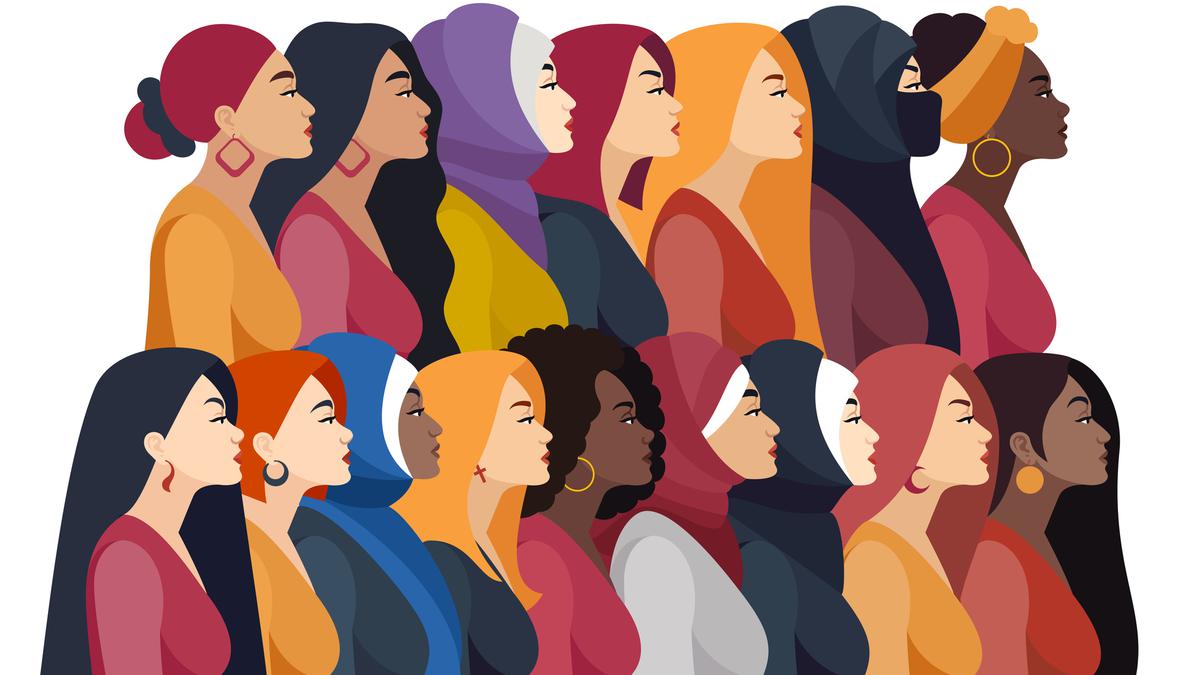
Column | Podcast Her Kajal Won’t Smudge is a celebration of the desi female experience
The Hindu
Her Kajal Won't Smudge: Engaging conversations on women's issues in India & Pakistan, featuring inspiring desi women.
It’s safe to say that in both India and Pakistan, the political and legal reforms achieved by feminist activism have led to a kind of backlash by conservative commentators, ‘men’s rights activists’ et al. Here in India, the latest Bollywood blockbuster is an aggressively misogynist film, a paean to ‘alpha males’ where the very last scene shows the unrepentant protagonist facing the camera and pointing towards his own penis in a crass gesture of defiance.
Over in Pakistan, the annual ‘Aurat March’ is the target of harsh, tending-towards- deranged, criticism year after year. Challenging the patriarchy in these parts of the world can feel like a Sisyphean enterprise. This is why it’s doubly important that these efforts are documented with clarity and insight — precisely what Maed in India’s new podcast, Her Kajal Won’t Smudge, brings to the table.
In the six episodes of the first season, Shana (a Pakistani-American lawyer with a Ph.D in economics) interviews desi women from many different realms. There’s Sheema Kermani, the classically trained Bharatnatyam dancer from Pakistan, who you must have seen in the music video for Coke Studio’s ‘Pasoori’. There’s popular sex educator Leeza Mangaldas, comedians Radhika Vaz and Sabah Bano Malik, illustrator Priyanka Paul and most recently, satirist Mariam Shafqat Goraya. Each of these individuals has, in her own way, fought against gender-based discrimination and helped move important conversations forward, including on social media.
During a video interview, Shana (who goes only by her first name) speaks about the genesis of the project. “I am fascinated by women observing women in society,” she says. “This was always very important to me. As a part of the diaspora, I am aware that my experiences will be very different from those of, say, someone who currently lives in Pakistan. When I lived in the U.K., I faced a certain amount of racism but that’s just one kind of discrimination. During the podcast, when I spoke to comedians from both India and Pakistan, for instance, I was very impressed by the way these women took stock of their own life experiences and were able to create humour or satire out of it. Those are the kind of conversations I have always wanted to have with desi women.”
Shana mentions how these conversations made her think about the marginalisation and discrimination that desi women face. Priyanka Paul, for instance, speaks about the hazards of being a vocal Dalit woman online. The abuse and the trolling are along several axes — caste, gender, body-shaming, and so on. Similarly, both Radhika Vaz and Sabah Bano Malik talk about how making comedy about patriarchy has earned them a degree of notoriety, especially among extremely-online men who just cannot stomach the idea of a woman making them the butt of the joke. That being said, according to Shana, social media has been a net positive in these women’s lives and has enabled a better quality of discourse.
“I think we tend to see street protests as something that happens only once in a while or when something horrible has happened,” Shana says. “But social media — which the press tends to discount as somehow ‘not real’ — has enabled feminists from around the world to have meaningful conversations with each other. It’s no longer one-way traffic, no longer discourse handed-down-from-the-West. It’s this consistent engagement that I feel has led to this point in culture where we have so much desi representation, whether it’s in TV shows and movies such as Ms. Marvel or Polite Society or the Oscar-shorlisted Joyland, or even something relatively ‘lighter’ like the web series Made in Heaven.
As a lawyer, Shana is especially sensitive to the advances made in the laws that address gender violence in both India and Pakistan. Progress is often slow but the efforts of legal activists as well as influencers like the women interviewed on this podcast have been bearing fruit.


